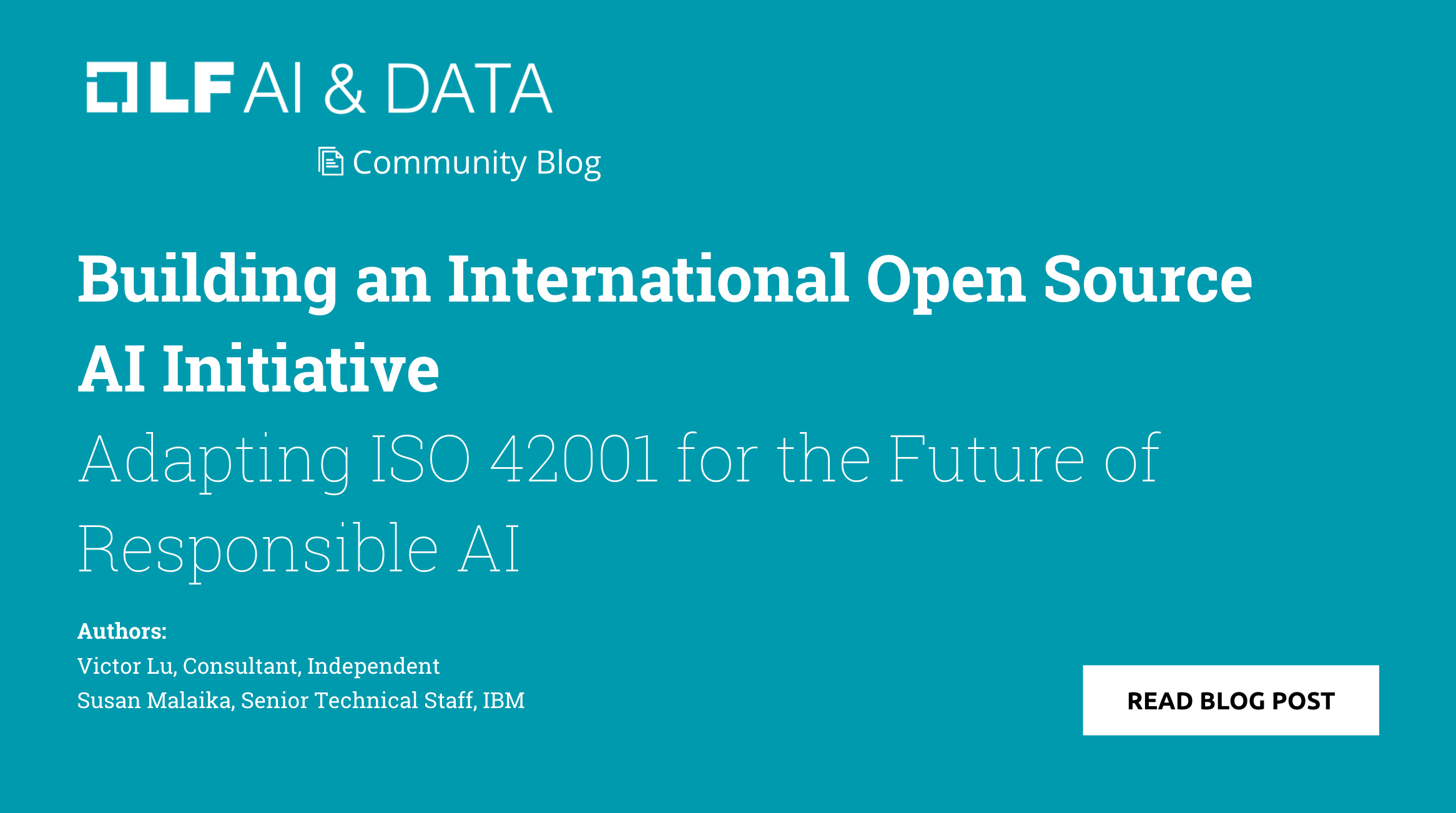
Authors: Victor Lu, Consultant, Independent; Susan Malaika, Senior Technical Staff, IBM
Artificial Intelligence (AI) is no longer just a buzzword—it’s a transformative force reshaping industries, research, and everyday life across the globe. As AI systems grow more powerful and pervasive, ensuring their trustworthy, ethical, and reliable development has become a shared challenge for all countries and communities.
One of the most promising ways to address this challenge is through international collaboration—bringing together governments, researchers, industry, and open source communities to create frameworks that balance innovation with responsibility. In this spirit, international standards like ISO 42001 offer a foundation for managing AI systems ethically and effectively.
Why ISO 42001 Matters for AI Governance
ISO 42001, an emerging international standard, lays out principles and practices for AI management systems. It covers everything from risk governance to ethical design, transparency, and ongoing monitoring. This kind of standard is vital to help organizations systematically identify and manage risks and foster trust through transparency and accountability
While ISO 42001 provides a robust framework, its successful adoption depends on tailoring it to the dynamic, collaborative world of AI development—especially within open source communities where innovation thrives on transparency and inclusivity.
The Power of Open Source in AI
Open source projects have long been catalysts for technological breakthroughs. They democratize access to cutting-edge tools, enable collaborative problem solving, and foster transparency that helps identify and mitigate risks early.
Adapting ISO 42001 for open source AI initiatives can create a practical governance model that:
- Supports diverse AI projects
- Encourages community-driven standards and tooling
- Promotes interoperability and shared best practices across borders
This adaptability is key to ensuring that responsible AI principles are not just theoretical but actively guide real-world development.
Toward an International, Inclusive Collaboration
AI is a global technology, and its benefits—and challenges—know no borders. For a standard like ISO 42001 to succeed on the world stage, it requires input and buy-in from all regions.
This means:
- Emphasizing shared values like innovation, transparency, security, and fairness
- Designing flexible standards that respect regional diversity while enabling interoperability
- Avoiding heavy-handed regulation that could stifle innovation or create barriers to participation
By focusing on collaboration over competition, the international AI community can build a unified approach that accelerates responsible AI adoption everywhere.
Aligning with International Priorities
Many countries and organizations recognize the importance of AI infrastructure, workforce development, and AI system robustness. Open source communities are uniquely positioned to contribute to these priorities by:
- Driving AI innovation and interpretability research
- Creating open benchmarks and evaluation frameworks to ensure system reliability
Open source projects not only complement but amplify international efforts to build secure, transparent, and ethical AI ecosystems.
Toward an Open Source-Compatible AI Management System (AIMS)
LF AI & Data’s Generative AI Commons: A Responsible AI Nexus
The LF AI & Data Generative AI Commons, part of the Linux Foundation AI & Data, has become a key collaborative space for advancing responsible open-source generative AI. It builds on several foundational initiatives, including:
- Model Openness Framework (MOF) – providing guidance for evaluating how accessible and open AI models truly are.
- Responsible Generative AI Framework (RGAF) – bridging the gap between regulatory expectations and practical developer workflows.
- Responsible AI Pathways – offering actionable roadmaps for integrating responsible AI practices throughout AI operation lifecycles.
Next Steps: A Call to Action for the AI Community
To realize this vision, the international AI community—including open source contributors, standards bodies, industry leaders, and policymakers—should unite behind a shared goal: adapting ISO 42001 to the unique realities of open source AI.
This means:
- Establishing inclusive working groups with broad international representation
- Developing modular, practical standards and toolkits for AI governance
- Promoting transparency, auditability, and security as core design principles
- Facilitating knowledge exchange, training programs, and shared infrastructure
Together, we can create a framework that empowers innovators everywhere to build AI that is not only cutting-edge but also trustworthy and responsible.
Conclusion
The future of AI belongs to all of us. By embracing open source collaboration and adapting international standards like ISO 42001 to fit our international community, we can unlock the full potential of AI while safeguarding our shared values.
This is more than a call to action — it’s a recognition that governments, standards bodies, industry leaders, researchers, and open source communities each hold a critical piece of the puzzle for Responsible AI. Without meaningful coordination, we risk duplicative efforts, regulatory blind spots, incompatible frameworks, and technologies that fail to reflect societal values. To prevent this fragmentation and build the trusted infrastructure Responsible AI requires, we must work together to shape an AI ecosystem that is equitable, transparent, and resilient.